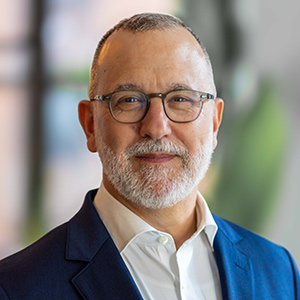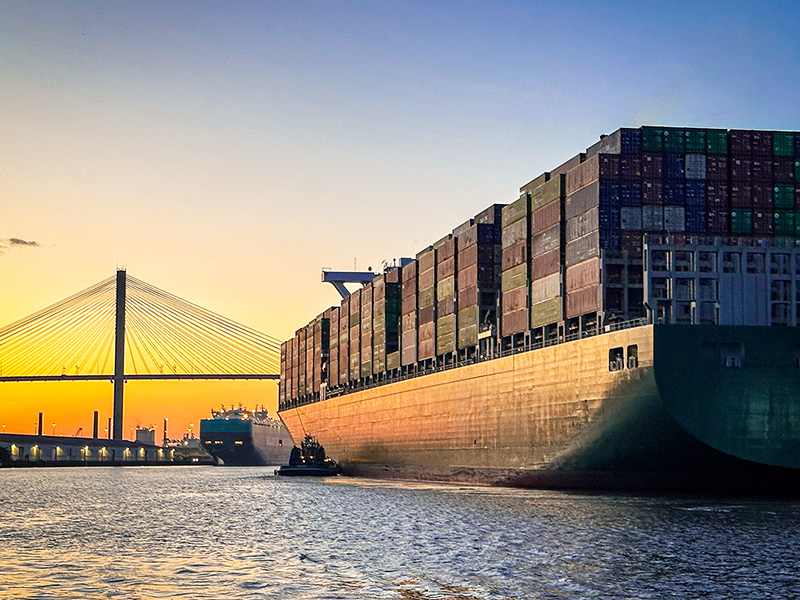Guests
-

President and CEO, BSR
Aron is recognized globally as a preeminent authority on just and sustainable business. In addition to leading BSR, which has grown substantially throughout his tenure as President and CEO, Aron advises senior executives at BSR’s 300+ member companies and other global businesses and partners on the full spectrum of environmental, social, and governance issues.
Aron joined BSR in 1995 as the founding director of its Business and Human Rights program. He later opened BSR's Paris office in 2002, where he worked until becoming President and CEO in 2004. Aron has served on advisory boards to CEOs at AXA, Barrick Gold, Marks & Spencer, Nike, Recruit Holdings, SAP, Shell, and he serves as a director of the We Mean Business Coalition and RISE.
Aron speaks frequently at leading business and public fora and is widely quoted in top-tier media, such as the Financial Times, Le Figaro (France), The New York Times, The Wall Street Journal, Axios, and Politico. He is co-author of the book Sustainable Excellence: The Future of Business in a Fast-Changing World, which spotlights innovative sustainability strategies that enable business success.
Prior to joining BSR, Aron practiced law in San Francisco and worked as a journalist at ABC News in New York. He holds a BA from Tufts University and a JD from the University of California, Berkeley.
Recent Insights From Aron Cramer
- Climate Week 2025: The World Shows Up at A Critical Time / October 2, 2025 / Blog
- Beyond the Business Case Debate: Reasserting the Strategic Value of Sustainability / July 30, 2025 / Insights+
- A Renewed Approach to Sustainability: Five Building Blocks for Business / July 2, 2025 / Blog
- A Message from Aron Cramer, BSR President and CEO / April 30, 2025 / Blog
- Meeting the Moment Together: BSR’s Partnership with You / April 10, 2025 / Blog
-

Managing Director, Marketing and Communications, BSR
David leads BSR’s marketing and communications initiatives, working with a global team to amplify the organization’s mission and showcase its activities, impacts, and thought leadership to members, partners, and the wider business and policy community.
David previously worked for The B Team, a group of global business and civil society leaders working to catalyze a better way of doing business for the well-being of people and the planet. Throughout his 20-year career, he has worked with businesses and nonprofits in economic development, public health, and sustainability to define and communicate their purpose and impacts. .
He has built high-impact communications campaigns for a collaboration to improve maternal health in Zambia and Uganda, driven top-tier media coverage for a major economic development project in upstate New York, and helped strengthen parliamentary capacity and voter education efforts in South Africa and Zambia. He began his career as a newspaper reporter.
David earned his M.A. from The Elliott School of International Affairs at the George Washington University and his B.A. in Journalism and Political Science from Michigan State University.
Recent Insights From David Stearns
- A Year of Uncertainty: Maintaining Progress Amidst a Battle of Ideas / February 13, 2025 / Audio
- A Conversation with Mario Abreu, Group VP, Sustainability, Ferrero / February 6, 2025 / Audio
- A Conversation with Darsh Myronidis, Group Director of Sustainability, Virgin / January 8, 2025 / Audio
- Reflections from Climate Week NYC: The Tension Between Pragmatism and Ambition / October 1, 2024 / Audio
- Navigating U.S. Election Uncertainty: A Call to Action for Sustainable Business / August 1, 2024 / Audio
Description
Aron Cramer, BSR President and CEO, chats with David Stearns about why the United States is at risk of marginalizing itself and its influence over the pace and trajectory of progress on sustainability, and what this means for business.
Listen
Transcription
David Stearns:
Welcome to BSR Insights, a series of conversations on emerging and cross-cutting business, economic, and social issues. Drawing on BSR's expertise from more than three decades of leadership in sustainable business, we'll help practitioners and decision-makers to navigate today's increasingly complex world. I'm your host, David Stearns. We're joined today by Aron Cramer, President and CEO of BSR. Welcome Aron. Nice to see you again.
Aron Cramer:
Hey David. Good to be with you.
David Stearns:
Thank you, Aron. A focus for BSR this year is supporting business leaders through global disruption, which is manifesting itself in a number of different ways, one of which is the evolving US role as a global leader in sustainability and how that role may be changing. You recently published a two-part series in which you assert that the US is at risk of marginalizing itself from the rest of the world on sustainability due to a number of factors. And then you go on to discuss some of the ways that companies can assert their influence to mitigate against this from happening.
So I'd like to start by unpacking this argument about marginalization a little bit more. Most of our audience will be aware of the public investments to address climate change, which were made possible by the Biden administration's Inflation Reduction Act. They may also be aware of some of the state-level measures and policies like California's climate commitment and rules around greenhouse gas disclosures for large companies and New York's gas stove ban. So given all of this, one might conclude that the US is actually making a good faith effort. So, I was wondering if you could take a few minutes to walk us through how, despite these and other efforts, the US is still largely out of step with other leading global economies when it comes to the pace and trajectory of progress on sustainability.
Aron Cramer:
Sure. So, first I would say it's absolutely correct that there are a lot of positive steps not only through regulation, but also through innovation and investment happening in the United States. We should not minimize that at all. It's real and it's important. So, that's one truth. The other truth is that some of the uncertainty that exists in the United States, not limited to the United States, some economies you see strong progress towards clean energy, but also significant and in some cases growing use of coal. So, I don't think the United States is necessarily alone in this, but I think the best way to think about it is to think about it from the perspective from outside the United States. So if you're looking at the US from outside, what do you see? You see the potential for another change in the White House next year, which would mean changes in party, going back in the party holding the White House, stretching over a long period of time with vast differences, vast differences on sustainability. That suggests uncertainty and frankly unreliability to many people outside the United States. So there's that.
Second from outside the United States, and I've heard this from many, many people from Europe, from Asia, from Latin America, what is this backlash all about? People just literally don't understand where it's coming from and why. And for investors in the United States from outside, they face really perplexing choices about different rules and different perspectives in different states. So there's that. From the outside, people also don't understand, or maybe just don't really like, the litigious nature of policymaking and testing in the United States and say, "Well, I see that there are these rules, but then they're held up in the courts. We're not really sure what to do."
And then you've got the federal system. The national government doesn't have the same level of control as it would in France, as it would in China, as it would in Singapore and so on. And so from the outside looking in, people see a ton of questions and can't really put their finger on exactly what they can expect from the United States. And that in my view, you can't rely on leaders if you don't know what the leader's going to do. And I think from the outside, a lot of people are concluding, they just don't know what's going to come from the United States.
David Stearns:
So you've briefly mentioned a little bit about how our federal system is one of the complicating factors that helps to make the situation the way it is and this lack of consistency, this lack of certainty, particularly you mentioned from observers from outside the United States. In your piece, you also talked about the media environment in the United States. Can you explain a little bit more about how the uniqueness of our federal system and a little bit about how the media environment here in the US, which may it look a little bit different than it does say in Europe or Asia, how those factors are potentially impacting our engagement on sustainability?
Aron Cramer:
Yeah, I mean the two things are in some ways, and of course it's a cliché to say that the United States is polarized. I would say it's fragmented. And again, the United States is not alone in that. But the federal system means that in some situations, take DEI as an example, there are some things that are required in certain states like California where I live that are not only disfavored but actively prohibited in other states including large states like Florida and Texas. And so a company is caught in between those things. Now this is reinforced by a media landscape that is presenting different versions of reality. And that's true in terms of television, but television is really watched by an aging population, it's more acute in social media where again, it's a cliché, but you can choose your own reality and retreat to your own community and have a lot of self-reinforcing dialogues where you can come away believing on the one hand, DEI is necessary because we have a diversifying population and it's the only way forward. It's just, it's fair, it's smart. And you can go into other communities where you're going to be fed arguments that, in my view are not correct, that somehow things like critical race theory and DEI programs at universities are completely interfering with basic fairness. So it's a choose your own adventure world and it means that the population is either split or broken up into a lot of different pieces and achieving the social consensus that's needed to make progress on really complicated issues is really quite challenging.
And the implications for companies on that are really significant because those people who are in different media landscapes getting different kinds of information, those are your employees, those are your customers, those are the people who are voting. And so companies rely on coherence, consistency, predictability, and in this environment it's very, very hard to come by in the United States.
David Stearns:
So it's interesting, and I think the two factors we've been talking about, the federal system, the media environment, I mean, these are things that are like trying to turn the Titanic around on a dime. We're not going to be able to make significant structural changes to those items.
Aron Cramer:
Hopefully it's not the Titanic, hopefully it's a more stable vessel.
David Stearns:
Fair enough, fair enough. That being said, given that it appears that we're rushing headfirst into this reality that you've described, and it's unclear to the extent to which we'll be able to make any significant changes to forestall that, you've mentioned some other ways that this will impact business. You've mentioned that the people who are consuming information in this environment, they're employees, they're customers, they're other stakeholders. What are some of the other risks that business specifically should be aware of? Why should business be particularly concerned about this unraveling of American leadership on sustainability that you've been describing?
Aron Cramer:
Yeah well, I think they are both practical and intangible, but still important, dimensions of this. So first of all, as I said, predictability is really, really, really important. There's a story in the Washington Post just this week, and an executive from an automobile trade association said, we can't keep going back and forth between completely different points of view on electric vehicles every four years because our product cycles, it just doesn't work. And so, I think that's one very important bit, which is predictability. The other is that given the rise of regulation, and this is one of the most important developments to impact just and sustainable business in all BSRs 30 plus years of existence, we've got competing regulatory requirements in the United States is in some ways out of step. The best example is the SEC rule, which for reasons that I actually understand, it chose not to address scope three and take a slightly different approach than you see from the CSRD, from the ISSB. And by the way, those are principles that are now being adopted in a lot of other jurisdictions across Asia and Latin America and Africa and so on. And it just means the United States is out of step. It means the United States is less influential, but you can't ignore, if you're a US-based company or you're doing significant business in the United States, you can't just ignore American regulators. But the need for harmonization or to use this, what I think is a horrible, although actually accurate word, interoperability in terms of reporting and disclosure requirements, that's leading companies to have to make very difficult choices about what standards to apply.
The other thing is that given that sustainability has become another front in the culture wars, there's a risk that whatever a company does, it's going to alienate important elected officials and so on. And look, we saw that with Disney's travails in the state of Florida, which have now subsided, but that's wasted time for a company to get caught up in all of that stuff. But unfortunately, there are people trying to make hay politically by demonizing certain aspects of sustainability, and that gives companies some kind of no-win situations in terms of how they address the need to maintain solid relationships with elected officials. I could go on, but those three are I think pretty important.
David Stearns:
So rather than dwell on what appears to be a really... it feels quite dire this scenario that we've laid out, but we here at BSR are solutions-oriented organization, so I'd like to shift gears a little bit here to talk about some of the solutions or recommendations that you may have for business that might help us to make some headway on this. But before we do that, and you've already talked about this a little bit, but maybe you can go a little bit deeper to help our business leaders understand why, why is it important for companies to get involved in calling for more American engagement on sustainability, and particularly as you've mentioned, the risks of speaking out can feel quite daunting. Lifting your head above the parapet at this point can result in some significant blowback, but help our listeners understand what is the business case for company leaders to get involved? Why should they be caring about this and not being able to just go about their business in spite of all of these changes that you've described occurring?
Aron Cramer:
Well, I mean the risk of stating the obvious, there's no way we can solve big global challenges without global cooperation. And I think the likelihood that global cooperation will be at the level that's needed is significantly diminished if the United States is not actively and cooperatively engaged in this, whether it's on the plastics treaty, whether it's on making good on the Paris Agreement and subsequent agreements at COP, whether it's supporting due diligence, whether it's supporting solid human rights performance on the part of companies, we need global cooperation. Companies need global cooperation to create a foundation on which they can build. So that's one rationale. The second is, again, more consistency. Businesses need consistency and predictability. So I think a stable environment is needed to deal with this. There's more than enough disruption taking place in the world right now. And so to have uncertain and constantly changing environment with America's engagement in question and uncertain, that just doesn't help things very much.
So that's the why. In terms of how to do it, we talk all the time about the act, enable, and influence framework. Companies should take action that they can take on their own, enable by working through various ecosystems, whether it's value chains or industry groups or in geographic locations. And finally influence how do you speak up? And I think that framework is something that companies should apply here. So I'll give just a couple of examples then happy to have you follow up with more questions. But in terms of acting, so the advice that we're giving to companies in an uncertain and inconsistent regulatory environment is don't settle for the lowest common denominator. Don't settle for the lowest common denominator. Companies should understand what the direction of travel is. A very practical example is on double materiality. It's not required in the United States, it's required elsewhere.
That is, in my view, almost 100% certain to be the wave of the future. So companies should get there first should go towards highest common denominator, not lowest common denominator. Second, in terms of enabling, this is a somewhat political topic. And so there's strength in numbers working through coalitions of the willing if trade associations, which often do take a lowest common denominator approach or not the right avenue, but companies can join forces. And we've seen that in some cases, some tech companies have spoken and spoken if not entirely together consistently about what they'd like to see in the United States with respect to protections for privacy and human rights on new technologies. That's extremely valuable. Fighting misinformation and disinformation. We've seen coalitions gather on that and that can catalyze action on the part of governments. And then in terms of influence, I think you have taken inside-outside approach, companies need to do more in my view, and it's in their interest to do so, to make clear what the fundamental business and economic reasons are for the energy transition, for technologies that have social acceptance, for advancing greater diversity in everything that they do. And these are core questions. Climate science does not respect political polarization. The climate is heating and it's going to continue to, regardless of debates. Same thing on diversity. The United States is becoming a more diverse population, mixed race people fastest growing category people in the census data. And so there are just underlying fundamental reasons and companies need to do a better job of explaining that to the public, to their employees frankly, and to policymakers doing some of that privately because sometimes that's more effective. I also think there are rationales for some of the inconsistent approaches that are frankly not on the level and businesses should call that out frankly.
David Stearns:
Thanks for that, Aron. One thing that I haven't heard from you yet, which I'm curious to hear your thoughts on this, the extent to which America ceding its leadership position on sustainable business, the extent to which that might affect competitiveness and the global market for American companies as well as innovation. Could you speak to those for a moment?
Aron Cramer:
Sure. So let me start with, I talked about intangibles earlier on. If you're a US-based company and the United States is not seen as being fully engaged in matters that are important to the rest of the world, brand America gets damaged, therefore your brand may be damaged. And so that's something that is I think, unique to us headquartered companies. But I've seen in the course of my work at BSR, American companies were often in the vanguard in addressing human rights issues in supply chains and elsewhere. And that was supported for a lot of the history of BSR by American governments, which was a positive reinforcement mechanism. And I've heard things like that from young Chinese citizens who appreciate what companies are doing and appreciate that they see that attached to the United States, and they are therefore more admiring of the United States. That is being diminished and I think that's bad for people everywhere. I think it's bad for the United States’ standing in the world and it's bad for US headquartered companies who are seen as being American, and that has often been a net positive. There's a risk that it becomes a net negative. So I think that's one thing that I think isn't getting quite enough attention. What is this doing to brand America? America has a lot of flaws. Let's be honest. One of the things though that I think has been admired by many people around the world is a desire, a focus on the future, maybe amnesia about the past, but also a focus on the future, a belief that it will be better, a belief in human progress. And I think the somewhat scared and timid reasons that are in the anti-sustainability world I think are undermining that. And I just think that's bad for everyone.
There's so much that's changing. We have to figure out how to make it work for everybody. And I think there's an important role for American leadership to play in all of that. And when I say that, I don't mean to diminish the importance of leadership from everywhere else, and I see it. You see it in China, you see it... I was in Singapore recently. You see it in Europe. This is the thing, America is basically ceding its position as a leader on sustainability. And I just, for the life of me, I frankly can't understand why that's in anyone's interest.
Now, you also spoke about innovation. What do you need for innovation? And American companies do an amazing job of innovation and are doing so even amidst the uncertainty. So again, I don't want to paint too negative a picture, but you do need to know what the rules of the game are going to be with a degree of certainty in order to place big bets. And let's face it, these are big bets. How do you align your product mix for a clean energy economy? How do you try to approach a more diverse population? How do you meet the needs of rising citizens, consumers around the world? How do you address people who've been marginalized in the economy for too long and in too many places? You need to know what the rules of the game are, and without that, I think it's going to create a ceiling on innovation.
David Stearns:
So we'd like to end our conversations, Aron, with asking our guests to sort of look around the corner and talk about what they might see coming next. But I liked your big bets analogy, and so I'm going to stick with that metaphor. Looking, say five, ten years in the future, are you buying or selling brand America?
Aron Cramer:
I'm going to be a little cautious. I think there are some underlying strengths that the United States has. It is a very dynamic economy despite the, in my view, horrific anti-immigrant rhetoric that is present in our country. People still want to come to the United States. If you look at how many people who are not born in the United States are leading some of the most dynamic companies, it's inspiring, it's exciting, and so on. People still want to come from outside the United States to American universities.
So despite all those problems, I think the American idea is still held in high regard by many, but it is questioned by many, many more than has been true throughout much of our history. And it's not 1946 anymore. The United States is not the only standing economy in the world. There's amazing dynamism happening in places, including in the Persian Gulf states, in places like Indonesia, I mentioned Singapore earlier, in India. People have options. And so I think if the United States does not stay focused on the future, does not stay focused on these ideas, and instead chooses to stick its head in the sand, then I'm short on America. But I'm an optimist. So I'm hopeful that that won't prove to be the case, but I think it's a less certain bet than it has been at other points.
David Stearns:
And I don't often include self-referential plugs in these, but I am curious to hear from you, Aron, if you're a business leader listening to this, how can BSR help them navigate this moment?
Aron Cramer:
Well, I think we are doing a lot talking with boards of directors, and I think these questions are board level questions. These are ultimately about strategy, and they're about high-level engagement with important, not just stakeholders, but also elected officials and so on. And so I think that's one area. Our scenarios work, and we're going to be updating our “Doing Business in 2030 Scenarios” later this year. So stay tuned for that. We can help you see the range of options. We have a group of companies gathering together, and any BSR member company or other companies are welcome to reach out to join this, an elections roundtable where we're helping companies understand the impact of elections in 2024, particularly in this instance, focusing on the United States. So we've got a great team that is focused on a lot of these questions and whether it's at board level, whether it's doing scenarios, whether it's creating a safe space for companies to talk about things that might play out as we go through this year, we are here to help, and we're actively engaged in doing that right now.
David Stearns:
Thank you for that, Aron. I appreciate your time and your insights, and we look forward to talking with you again soon.
Aron Cramer:
Great. Thanks David.
David Stearns:
Thanks for listening. For more in-depth insights and guidance from BSR, please check out our website at bsr.org and be sure to follow us on LinkedIn.
BSR’s latest sustainability insights and events straight to your inbox.
Topics
Let’s talk about how BSR can help you to transform your business and achieve your sustainability goals.







